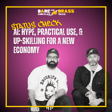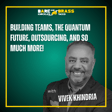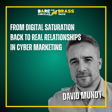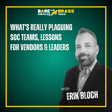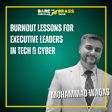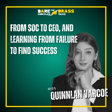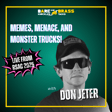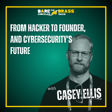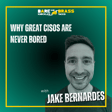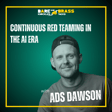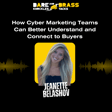
Lessons from 25 Years in Cyber, from Corporate to Startup to Consulting and Back
This week we talk to Allan Alford talking about his 25 years journey from CISO to startups to consulting and now his return back to corporate America!
George K and George A talk to Allan about:
- His wild career journey - and what motivated his most recent career decision
- His new gig at NTT Global Data Centers, and why data centers are the next hot thing in security
- The truly global scope of his new gig
- Why people and process beat technology EVERY time - even in tech companies!
Allan also drops some straight FIRE about vendor relationships - including the sobering fact that in 25 YEARS, cold outreach has matched his actual needs exactly ONCE. Vendors, there’s a lot of learn here about how to stand out before and after the contract is signed.
-——
🇨🇦 We’ll be setting the stage on fire with the opening keynote at SecureWorld Toronto on April 8th. And…we’ll be closing out the show with our signature event, the Cyber Pitch Battle Royale!
Use our exclusive discount codes to save on registration for SecureWorld Toronto:
- BKBTSWC1 $50 off - BKBT Conference Pass
- BKBTSWO1 $50 off - BKBT Open Session Pass
- BKBTSWP1 $75 off - BKBT Plus Pass
Register to watch the can't-miss Cyber Pitch Battle Royale in Toronto! Practitioners get in free.
————
👊⚡️BECOME A SHOW SUPPORTER
https://ko-fi.com/bareknucklesbrasstacks
For as little as $1 a month, you can support the show and get exclusive member benefits, or send a one-time gift!
Your contribution covers our hosting fees, helps us make cool events and swag, and it lets us know that what we're doing is of value to you.
We appreciate you!
